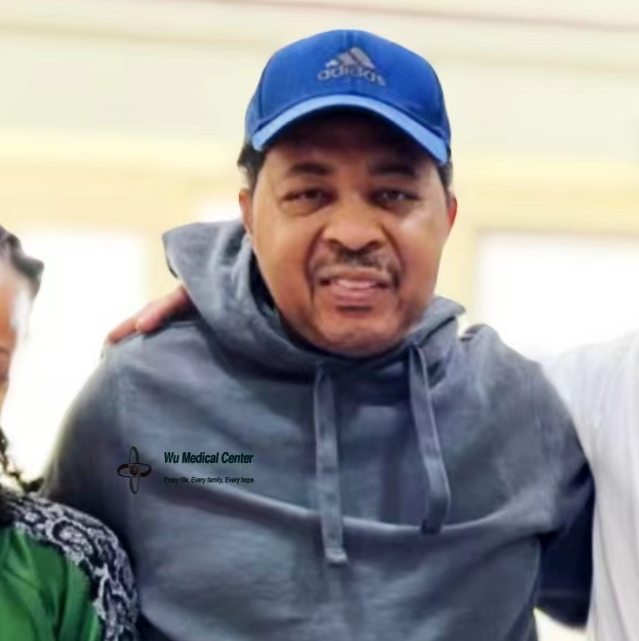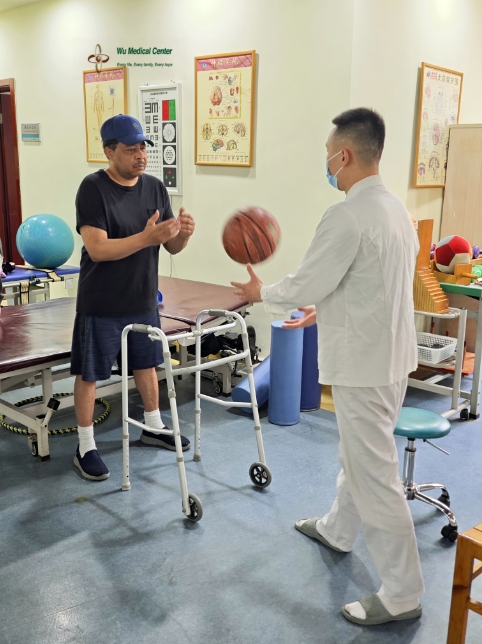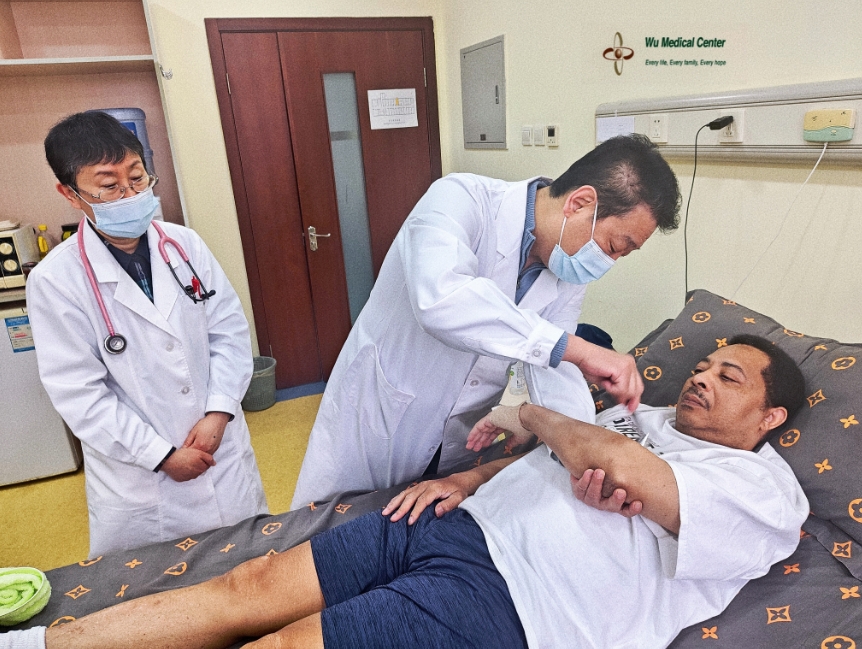Anthony Dexter Ravenell-Multiple System Atrophy-Cerebellar (MSA-C)-(American)
 Patient Name: Anthony Dexter Ravenell
Patient Name: Anthony Dexter Ravenell
Gender: Male
Age: 59 years old
Nationality: American
Diagnosis: Multiple System Atrophy-Cerebellar (MSA-C)
At Admission:
The patient was admitted due to "progressive imbalance and dysarthria for over 3 years" with a diagnosis of "Multiple System Atrophy-Cerebellar". His main symptoms include difficulty with balance upon movement, dysarthria, severe atrophy of the tongue, slow movements, frequent nocturnal urination, and mild cognitive impairment.
Physical Examination upon Admission:
Patient's blood pressure is 125/89 mmHg, and his heart rate is 75-80 beats per minute. He is in good nutritional condition, and there are no significant abnormalities in general internal medicine systems.
Neurological Examination:
The patient was alert. He had dysarthria, cerebellar language, and slurred speech. His speech was slow and his tone lowered. His understanding was normal, but his short-term memory was slightly impaired, and his calculation skills were poor, making errors in subtraction of two digits. Both his pupils were round and of equal size, diameter:3.0mm, with a sensitive reaction to light. There was full smooth saccade with no obvious nystagmus. The nasolabial and frontal sulcus of his both sides were symmetric. His tongue was located in the center of the mouth. His tongue had severe atrophy, and the bilateral soft palate had weak lifting ability. There was choking during his water drinking. He had strong neck and shoulder movements, with basic grade 5 strength in his limbs. His limb muscle tone was generally normal, while his tendon reflexes are almost absent in his limbs. His bilateral palmomental reflex was positive, while all other pathological reflexes were negative. His bilateral fingers pointing, hands alternating, and finger-nose tests were significantly delayed and clumsy, while his bilateral heel-knee-shin tests were less stable and inaccurate, with worse performance on the left. He had positive signs on the Romberg test both with eyes close and with eyes open. He was unable to walk independently, had unstable standing on both feet, had a broad step-base, and was unable to stand on one leg. His meningeal irritation sign was negative.
Treatment process:
The patient was admitted with a clear diagnosis of "multiple system atrophy-cerebellar type (MSA-C)". He was given CAST treatment and a combination of two types of stem cells, neural stem cells and mesenchymal stem cells, for therapy to repair brain nerve lesion, nourish nerve, improve body environment, immunoregulation with comprehensive rehabilitation training.
Post-treatment:
The patient's motor function, speech ability, and intelligence have significantly improved. His speech is clearer and stronger than before, with an increase in his speech speed. His intelligence has improved, and he can successfully complete double-digit subtraction caculations. His short-term memory has improved. His palmomental reflex has turned negative. His bilateral fingers pointing, hands alternating, and heel-knee-shin tests have improved and become more stable than before. His balance ability has significantly improved, and he can now independently roll over, get out of bed, stand from a seated position, maintain balance for approximately 3 seconds when standing on one foot, and walk with significant improvement in his step-base when standing on both feet. He can now complete independent short-distance walking and turn independently, with a more stable gait than before.



